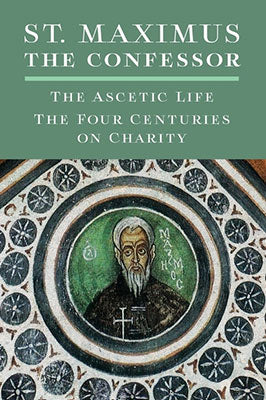
St. Maximus the Confessor: The Ascetic Life, The Four Centuries on Charity
Delivery in 2-9 business days.

St. Maximus the Confessor (c. 580–662), saint and martyr, might well be called the Saint of Synthesis. His thought, no less than his geographical wanderings, place him between Rome and Byzantium, between the theologies of East and West, and between the early Middle Ages and the ancient Church, whose representatives and traditions (which during his day had suffered much at the hands of imperial and ecclesial censure) he salvaged and brought back to the attention of his contemporaries. In this, we may take him as an exemplar for our own time, which demands of us as well such a re-excavation of the traditions of the Church as we seek also to bridge the divergences of the past (along with others that have meanwhile come to roost) in our present spiritual quest.
The Ascetic Life takes the form of question and answer between a novice and an old monk. This dialogue springs directly from the nature of Christian life, centering above all on the quest for salvation, that is, the Lord’s purpose in His Incarnation—for it is by learning to make this purpose our own that we shall be saved, or deified, as St. Maximus would say. Once this purpose has been made clear and embraced, the three principal virtues required for attaining it are then explored—love, self-mastery, and prayer. Love tames anger, self-mastery overcomes desire, and prayer joins the mind to God.
The Four Centuries on Charity is written in the form of sententious or gnomic literature, which was first fixed in “centuries” by Evagrius Ponticus, both the number 100 and the number of the centuries being significant: the first as a perfect number referring to the One, God; and the other as representing the four Gospels. St. Maximus himself offers concision as the reason for his choice of the sententious form, for it facilitates the work of the memory in order that the reader may lay by a store of memorable, pithy sayings upon which to dwell prayerfully.
This text begins thus: A brother asked an old man and said: “Please, Father, tell me: What is the purpose of the Lord’s becoming man?” The old man answered and said: “I am surprised, brother, that you ask me about this, since you hear the symbol of faith every day. Still, I will tell you: the purpose of the Lord’s becoming man was our salvation.”
This simple but infinite first interchange leads to a resounding composition, note-upon-note, of the song of our salvation, surrounding us with no less than a full symphony of renewed and refreshed understanding of our own Christian heritage.